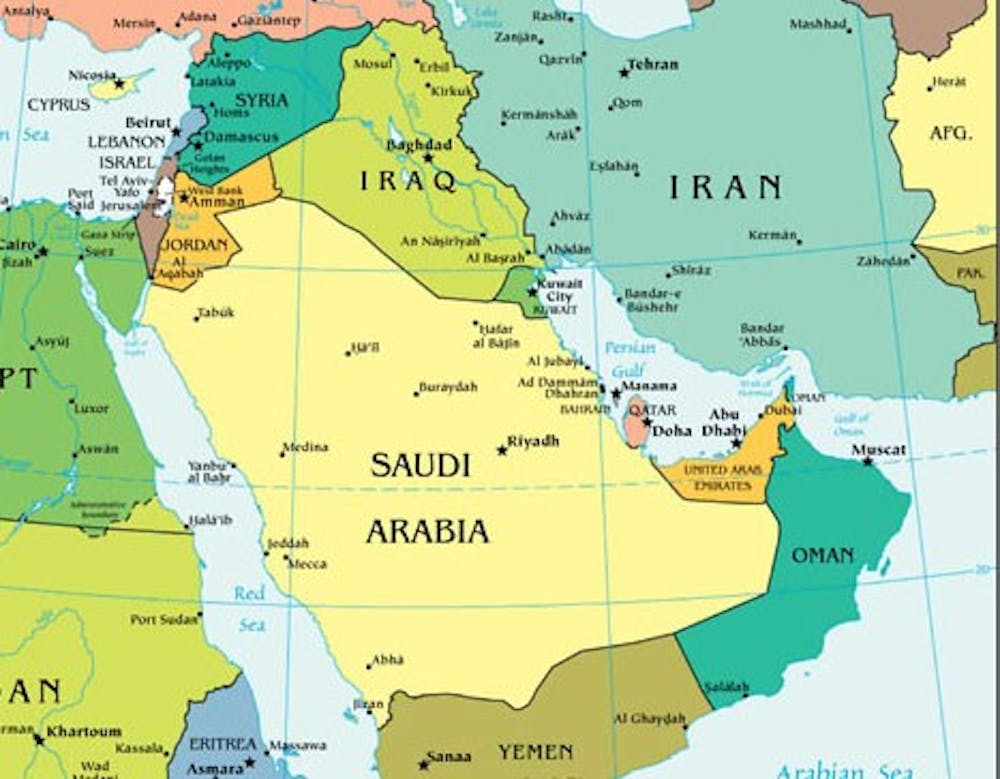In the past 15 years since 9/11, the U.S. has gone to war, killed Osama bin Laden, rebuilt Ground Zero and moved on — except for last week when Congress created a law that allows Americans to sue Saudi Arabia.
The law is called JASTA, or the Justice Against Sponsors of Terrorism Act, and it gives relatives of 9/11 victims the ability to sue Saudi Arabia for suspicion of being involved in the attacks, according to The New York Times (NYT). Both houses of Congress overrode President Barack Obama’s veto of the bill last week, passing JASTA into law just more than 15 years since the attacks.
Most college students are too young to remember the fine details of the Sept. 11, 2001, attacks and may not have learned that 15 of the 19 hijackers were from Saudi Arabia — not Iraq or Afghanistan, but a nation the U.S. never went to war with.
Despite extreme cultural and moral differences between the U.S. and Saudi Arabia, the two nations are political and economic allies. The Persian Gulf country is the second largest exporter of crude oil to the U.S., hosts American military bases and has vast sums of money invested in the U.S., according to the NYT.
So why did Congress give the American people carte blanche to pursue a witch hunt against a vastly important ally? The answer is not clear.
To say JASTA came out of left field is an understatement. The mere discussion, let alone the passage of the law, is a political nightmare, especially given how much time has passed since 9/11. It is tantamount to allowing Americans to sue the George W. Bush administration for invading Iraq — what good could come from it, even if Americans thought such a lawsuit was validated?
No one has to wait around and guess how the Saudi government will respond to JASTA, because they wasted no time in making a statement.
“The erosion of sovereign immunity will have a negative impact on all nations, including the United States,” the Saudi foreign ministry said on Thursday, according to Al Jazeera.
Sovereign immunity refers to a country being free from legal accusations of wrongdoing, thus making it immune to lawsuits allowed by JASTA. This is only the tip of the iceberg of another problem that JASTA will create.
Saudi Arabia is the leading force in a wealthy alliance of oil-producing nations around the Persian Gulf. If the U.S. will dissolve Saudi immunity, then the Saudi government may do the same to the U.S. — and encourage its allies to follow suit. That means for every time the U.S. carried out a military operation and caused harm to life or property to people of one of those nations the U.S. government could be sued.
But the U.S. will maintain its sovereignty and defend its people. This is where JASTA starts to create real trouble.
When the U.S. does not play by the same rules as everyone else, there are sometimes consequences. The 1973 oil crisis is proof that Arab nations can cripple the U.S. without any violence, and they can do the same thing today.
Other than oil, the Persian Gulf is a vital military resource for access and training grounds in the Middle East, according to the NYT.
Yes, JASTA may be a way for some Americans to seek justice, but too many problems and questions are left unaddressed. Why now? Why is JASTA worth the political fallout? If Saudi Arabia is at fault for 9/11, why would the U.S. government not respond directly?


The Slate welcomes thoughtful discussion on all of our stories, but please keep comments civil and on-topic. Read our full guidelines here.